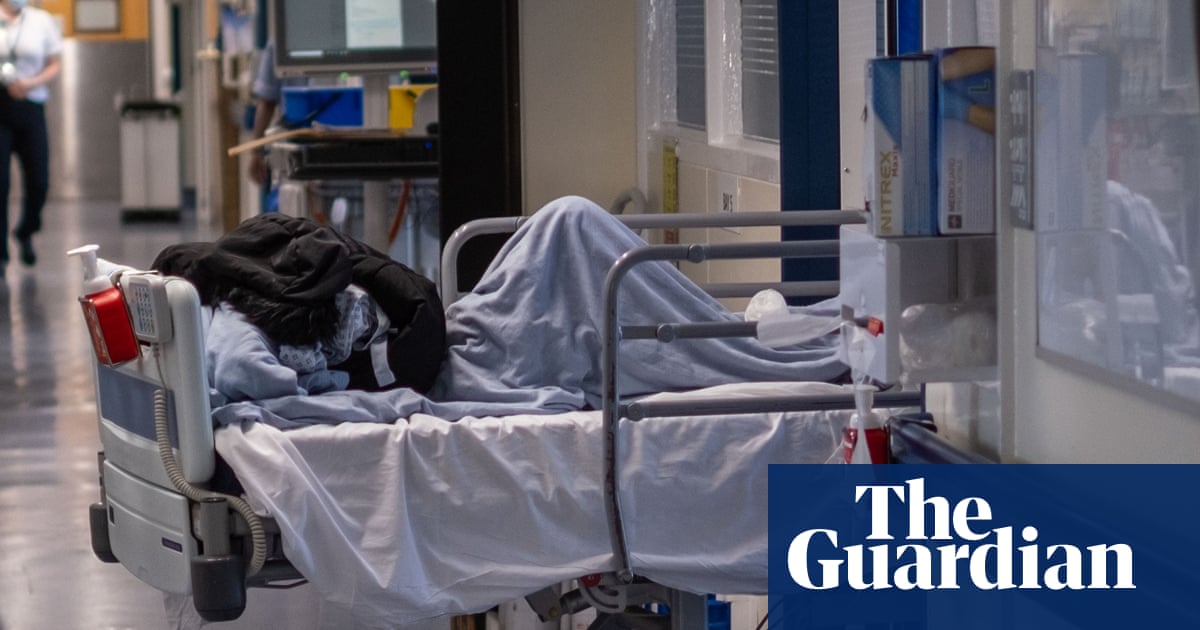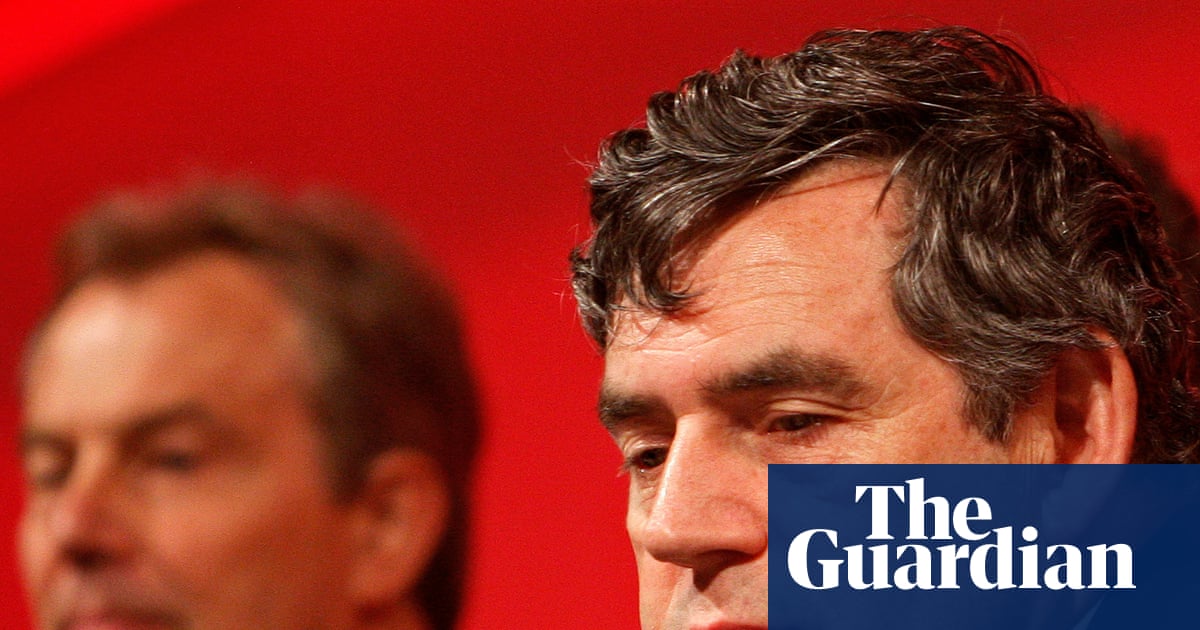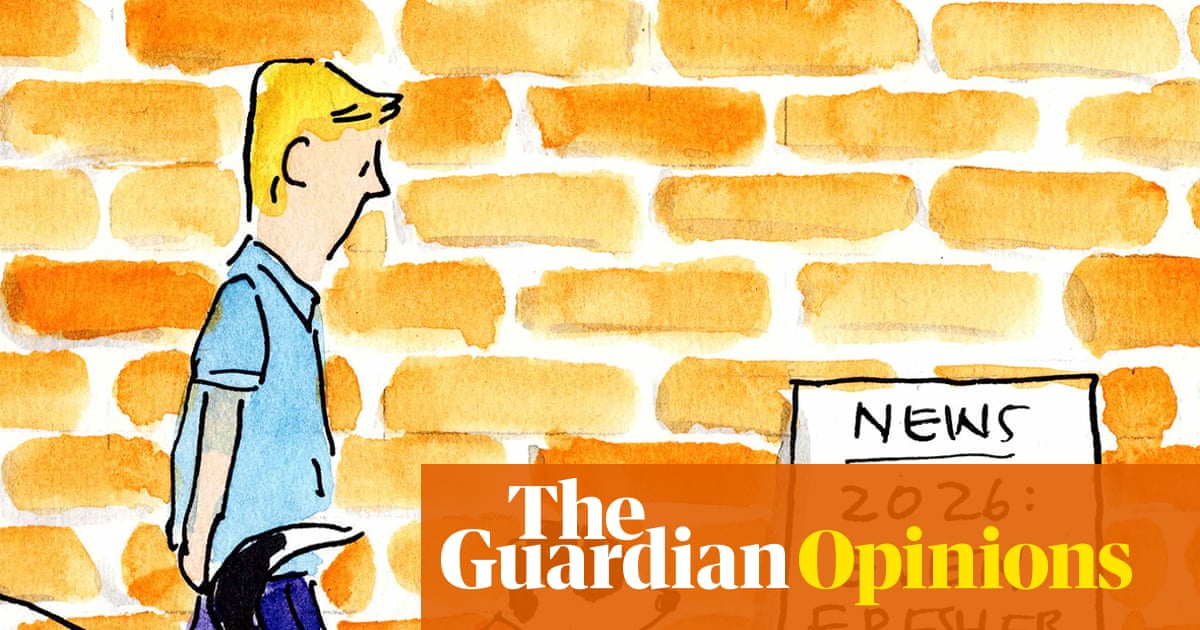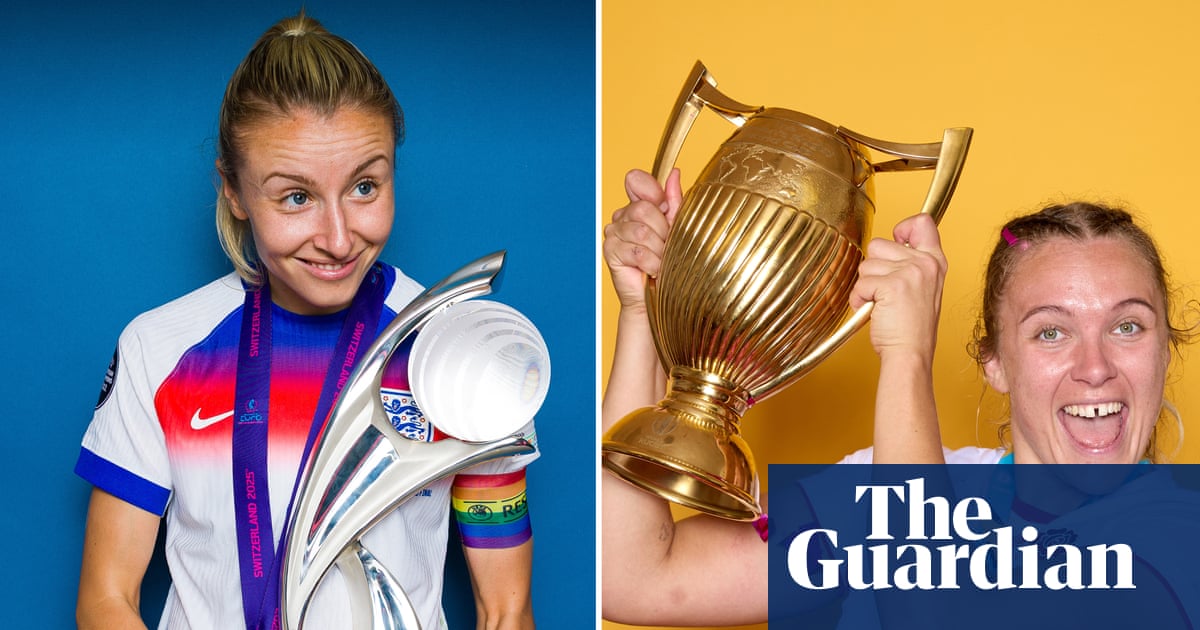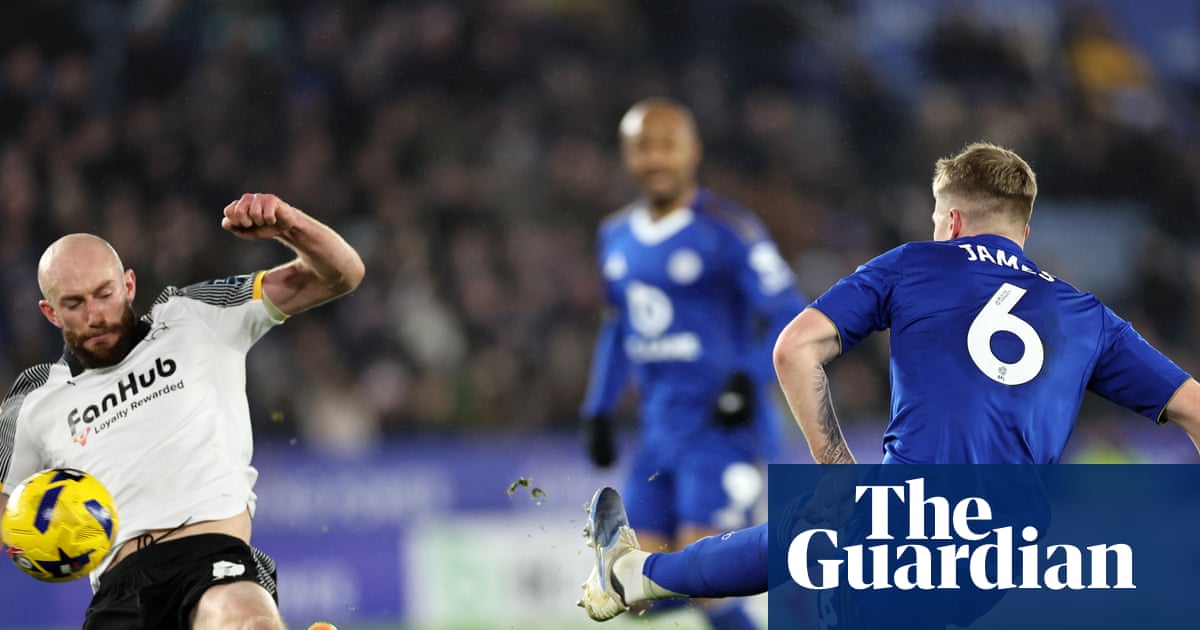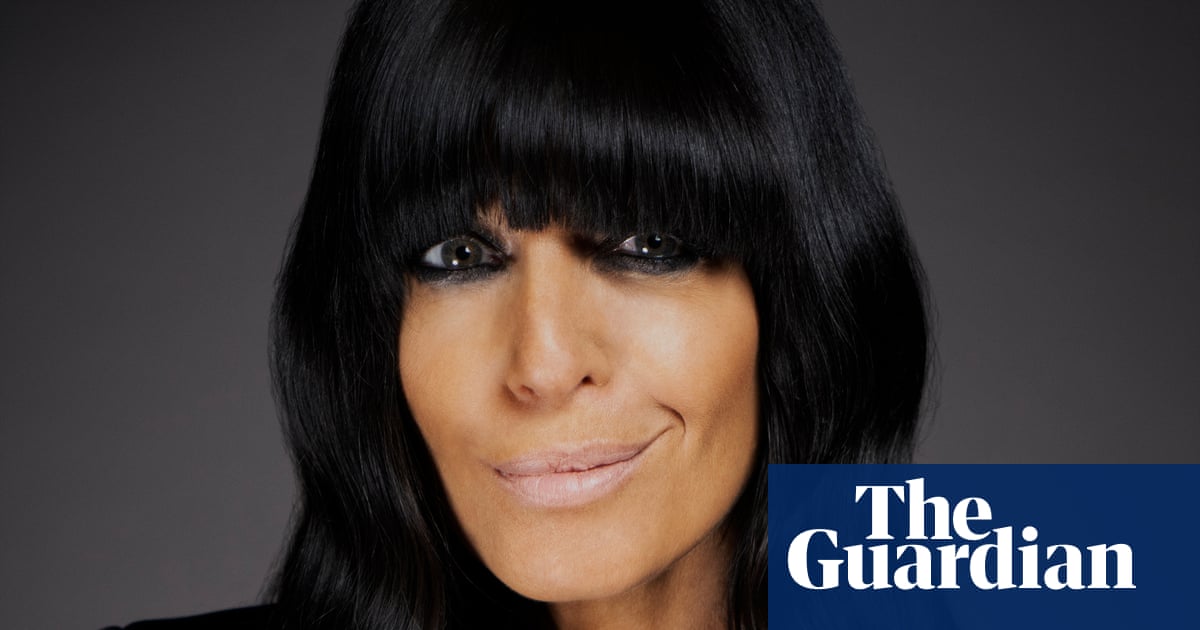The first thing most people recall about Nathan Gill is his imposing height.
At 193cm (6ft 4in), the one-time Reform UK leader in Wales towered over colleagues and opponents – and he was taller still in his favourite cowboy boots.
Other than that, the softly-spoken 52-year-old was a largely unremarkable presence among the more colourful characters in Nigel Farage’s parties.
Until recently, political profiles have dwelt on Gill’s politically quirky status: the teetotal member of the Church of Jesus Christ of Latter-day Saints who bore Ukip’s flag in the Senedd, even if opponents charged that he was often absent.
Yet his legacy is now a very different and disturbing one. This month he will be sentenced at the Old Bailey after pleading guilty to taking bribes to make statements in favour of Russia during his tenure as a member of the European parliament.
In modern British politics, it is an almost unique fall from grace – perhaps with parallels to the story of John Stonehouse, the high-flying Labour MP recruited as a spy for Czech intelligence in the early 60s.
But Gill’s humiliation isn’t just personal. His links to Russia raise awkward questions for Reform UK, and for its leader, Nigel Farage – Gill was a key lieutenant of his when they were both in Brussels. While Farage has been trying to distance himself from Gill, multiple sources who worked with them in Brussels have told the Guardian that the two men used to be close.
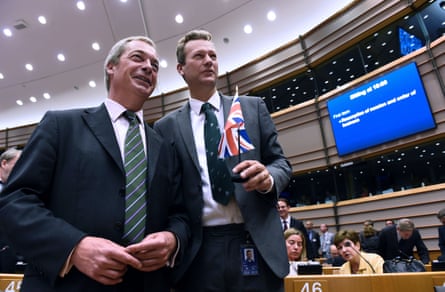
The moment of Gill’s downfall dates back to July 2021 and the arrivals queue at Washington DC’s Dulles international airport.
FBI agents stopped Oleg Voloshyn, a pro-Kremlin Ukrainian politician close to Viktor Medvedchuk, a Ukrainian oligarch sometimes known in his native country as the “dark prince” and a long-term ally and friend of Vladimir Putin.
It was less than a year before Russia’s full-scale invasion of Ukraine and Medvedchuk had been charged with treason, and his TV channels, conduits for Russian propaganda, had been taken off the air.
Voloshyn, his envoy to the west, was in the crosshairs of US authorities.
The FBI extracted WhatsApp messages from Voloshyn’s phone in which he discussed secretly paying Gill. Voloshyn was released after three hours of questioning, but he and Medvedchuk were both named the following year by the US as agents of a Kremlin plot to install a puppet government in Ukraine.
Now in Moscow, Voloshyn was Gill’s co-accused, albeit beyond the reach of British authorities. Two months later in September 2021, after the stop at Dulles airport, counter-terrorism police arrested Gill at Manchester airport.
On his phone, police found messages that showed he had reached an agreement with Voloshyn. According to prosecutors, Gill accepted cash on at least eight occasions to make specific statements and opinions benefiting Russia.
The amount has yet to be disclosed, but various amounts totalling in excess of at least £10,000 were mentioned in WhatApp messages between him and Voloshyn.
Looking back on them now, the public statements appear subtle, but they provided the mood music in the west for a propaganda war being waged by the Kremlin to paint Ukraine’s pro-western leaders as repressive.
For his cooperation in this covert PR campaign, Gill received “xmas presents” and “post cards” – coded references to money. They were his reward for making speeches in the European parliament and giving TV interviews scripted by Voloshyn.

Speaking to the Guardian via email, Voloshyn denied allegations made by the US and UK that he had acted at the direction of Russia’s FSB spy agency.
He insisted the payments – typically £4,000 or £5,000 each – were merely media appearance fees, rather than bribes. He described Gill as a “humble” father of five who was “definitely not rich” and was the “victim of a geopolitical conspiracy”.
The tangled story of Gill and Voloshyn raises questions about how Russia has attempted to cultivate contacts across British political life.
David Coburn and Jonathan Arnott, two other MEPs who were part of Farage’s Ukip bloc in Brussels, visited Ukraine with Gill on an October 2018 trip. During the visit, Coburn, Gill and Arnott appeared on camera in interviews with 112 Ukraine, a pro-Russian channel affiliated with Medvedchuk.
Six weeks later, the three would make similar statements during a debate in the European parliament on 11 December that touched on press freedom in Ukraine and the question of whether it should be allowed to join the EU.
Gill spoke first. While saying he had “every sympathy with Ukraine”, he added: “It is wrong to fight repression with repression.” Prosectors in Britain say he had received a script for the speech from Voloshyn on 7 December 2018.
Arnott and Coburn followed, with the former calling on the Ukrainian government to ensure freedom of the press “against a backdrop of violence against journalists [and] the proposed closure of TV channels”.
Coburn then accused Kyiv’s leaders of being “found wanting” on freedom of the press, accusing them of “plotting” to close the channel 112 Ukraine and questioning whether Ukraine was fit for EU membership. Gill and Coburn sat on the channel’s new “international” board, along Voloshyn and others.
There is no suggestion that either Coburn or Arnott took bribes in the same way as Gill.
Contacted by the Guardian, Arnott rejected any suggestion that he had links to Russia or was acting in its interests and pointed to another part of his speech in which he said “the best response to a loss of freedom is increased freedom”.
He added: “I think that provides a bit of background and context to what I was saying in the speech and explains where I was coming from. Russia’s suppression of free speech should not be countered by Ukraine also suppressing free speech.”
Attempts have been made to contact Coburn.
In correspondence with the Guardian, Voloshyn claims the broadcaster 112 Ukraine “should have” covered the MEPs’ travel costs on their 2018 trip. In fact, declarations by the three to the European parliament record their tickets as having been paid for by the European Centre for Democracy and Human Rights, a front created by Russian intelligence agents with the same name as a genuine organisation.
The cutout’s president, Janusz Niedźwiecki, was arrested in 2021 in his home country, Poland, on suspicion of espionage for Russia. Arnott said if he had been aware the money for his trip may have come from Russian assets “obviously I would not have participated in any visit on such a basis”.
Farage has faced questions about the extent of contact he may have had with Voloshyn. Nadia Sass, Voloshyn’s wife, a 112 Ukraine journalist, last year posted a photo on X of herself with Farage, which appears to have been taken outside the European parliament in about 2018, saying she would “miss Nigel Farage and his team”.
Another tweet included a picture of Farage holding a T-shirt with the logo “Leave and Let Die #brexit”, apparently taken in Gill’s Strasbourg office in 2018. Voloshyn said Sass had given it to Farage because she wanted to promote her political T-shirt business. He claims he has never spoken to Farage.

A spokesperson said: “Nigel Farage meets thousands of people every single year. Many hundreds of them will ask to have a photo taken with him. He was deeply shocked and angered by the actions of Mr Gill and condemns them in every possible way.”
They added that Farage did not have any knowledge of Gill’s “shameful activities”.
But Niedźwiecki and Voloshyn appear to have also widened their net beyond the various incarnations of parties by Farage. Both were named in warning emails sent to all MPs at Westminster in July 2021 and January 2022 by the speaker of the House of Commons, Lindsay Hoyle.
A number of MPs are understood to have come forward to the security services after Hoyle warned them that Voloshyn was working to gain the support of a number of politicians in parliament for policies in support of Russian state objectives.
Sir John Whittingdale, a former minister and chair of the all-party parliamentary group on Ukraine, said he had first come across Voloshyn when he was “the right hand man” to Kostyantyn Gryshchenko, who served as Ukraine’s foreign minister under its Moscow-friendly president Viktor Yanukovych.
“I went to observe an election around 2012 and I did see him once at his request in Westminster [in 2018] with Nadia Sass [Voloshyn’s wife]. As I recall they were complaining about restrictions and harassment of her TV channel by the government,” Whittingdale told the Guardian.
“He has now been identified as a Russian asset, though at the time I knew him he was working for the [previous] Ukrainian government, which was quite pro-Russian.”
There is no indication that Whittingdale or other Tory MPs such as Mark Pritchard, who was due to appear on a panel at an event in London with Sass, were compromised by any association with him.
Instead, the heaviest price is expected to be paid by Gill, whose guilty plea in September to eight counts of bribery between 6 December 2018 and 18 July 2019 took prosecutors by surprise.
An ashen-faced Gill had entered the plea after earlier appearances at Westminster magistrates court, where he had been ordered to surrender his passport and register with police at Anglesey, the Welsh island where he lives with his wife and children.
Before entering politics, he had practised in Anglesey for six years as a Mormon bishop. Anglesey had also been the base for an earlier business running care home services founded by his family and operating mainly in Hull. That business collapsed with debts of £116,000 after the 2008 financial crisis hit.
Attempts to build a political career followed, with early failures at gaining election at council and devolved level before finally becoming a Ukip MEP in 2014.
From the misery of a struggling business and electoral failure, Gill found himself at the centre of Brussels politics, rubbing shoulders with the eclectic milieu of international visitors and lobbyists at the European parliament. A hitherto unnoticed interest in international affairs bloomed.
Farage has been trying to distance himself from Gill, telling the BBC that he was “stunned” when he found out his party’s former leader in Wales took bribes.
Challenged on whether he questioned Gill over the statements, Farage said: “I didn’t know anything about it; all I knew was that he’d been to Ukraine. I told him not to go, he defied me and went, I was completely unaware of any statements that he made.”
However, multiple sources who worked with Farage and Gill in Brussels and Strasbourg said the two men had been close.

Gill was described variously as Farage’s “enforcer” and “right-hand man” by some who recalled they had adjoining offices. One former Ukip MEP from that time told the Guardian: “Gill was in the thick of organising. He was the right-hand version of Farage. His office was right beside Farage’s.”
“Nathan had a unique place in the party,” another source said. “He was the centre of gravity in Wales, and David [Coburn] was at the centre in Scotland. I found David quite difficult – he could be very outspoken. He was very loyal to Nigel.”
Gill also had personal vulnerabilities of the sort foreign intelligence agencies look to seize upon.
Alex Phillips, formerly a media adviser to Gill and someone who also served alongside him as a Brexit party MEP, said: “There is a tragic backdrop to this. They clearly targeted someone who was financially vulnerable.”
Phillips told the Guardian she was “as shocked as everyone” when Gill was arrested, adding that she voluntarily went to speak to the Metropolitan police and let them know that she had known nothing about his secret activities.
“I don’t believe he was cunning enough to really believe in what he became involved in. It’s quite sad really.”

 1 month ago
47
1 month ago
47



